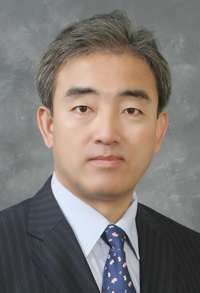‘One-source, multi-use’ strategy will boost hallyu

Korea should adopt a “one-source, multi-use” strategy to make “hallyu,” or the Korean cultural wave, a sustainable global trend, former Vice Culture Minister Yoo Jin-ryong said Wednesday.
Yoo, as the first dean of the Catholic University of Korea’s Hallyu Graduate School, which will open in late August, will lead its efforts to promote the globalization of Korean pop culture. The school will provide courses on K-pop and K-drama, which have gained popularity worldwide.
“The difference between our courses and the programs being offered by other colleges is that we focus on linking culture to business,” the 56-year-old said in an interview with The Korea Times. “We are actively cooperating with government agencies and business associations to develop new business models, using hallyu.”
He said the school will conduct systematic research on the Korean wave to maximize its potential because it will help expand the country’s diplomatic and economic frontiers. “People’s growing interest in Korean pop culture around the world will boost the country’s trade and tourism. That’s not just a cultural phenomenon but about the country’s economic future,” Yoo said.
He called for support from the government and related industries to foster a worldwide fan base for Korean pop culture, saying it is necessary to continuously develop attractive cultural content to make hallyu sustainable and more globally accepted. He said his task is to form a cooperative partnership among related industries to maximize such positive effects.
“We need to take a systematic approach to nurture the entertainment industry and talent. They will eventually help improve the country’s reputation abroad, leading to more trade and more cultural exchanges,” he said.
Yoo, a native of Incheon, served in key culture- and tourism-related posts in the ministry before working as vice culture minister in 2006. After retiring from public roles the same year, he worked as vice president of Eulji University in Seongnam, Gyeonggi Province. <The Korea Times/Na Jeong-ju>




